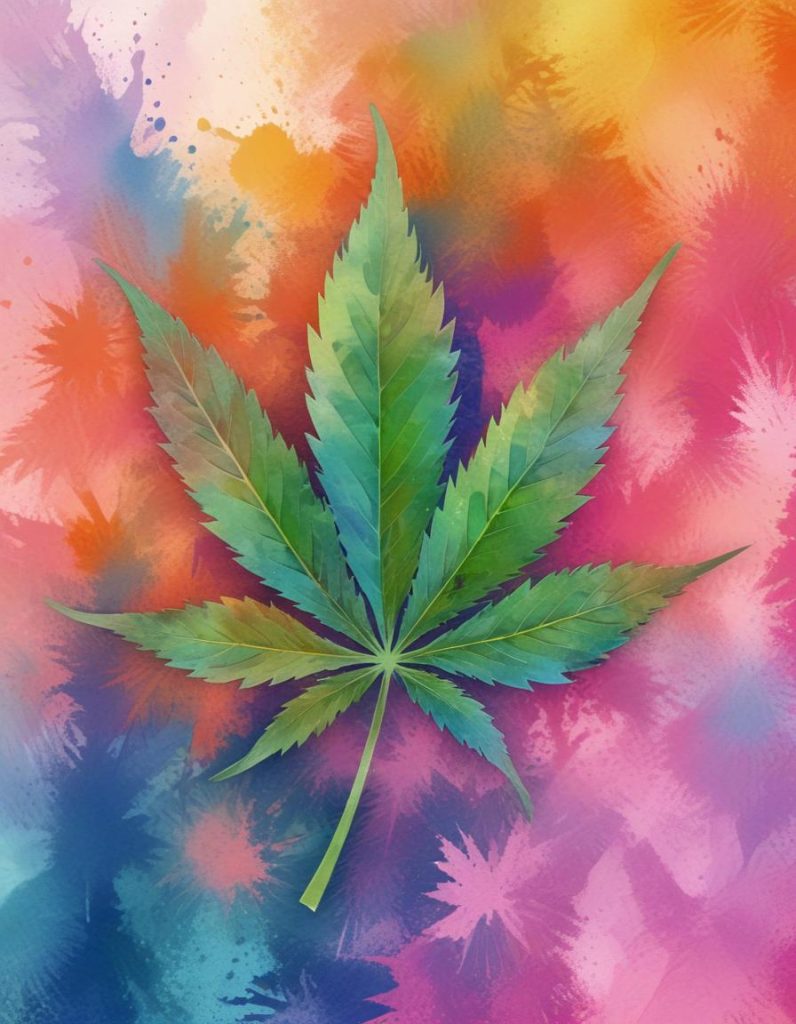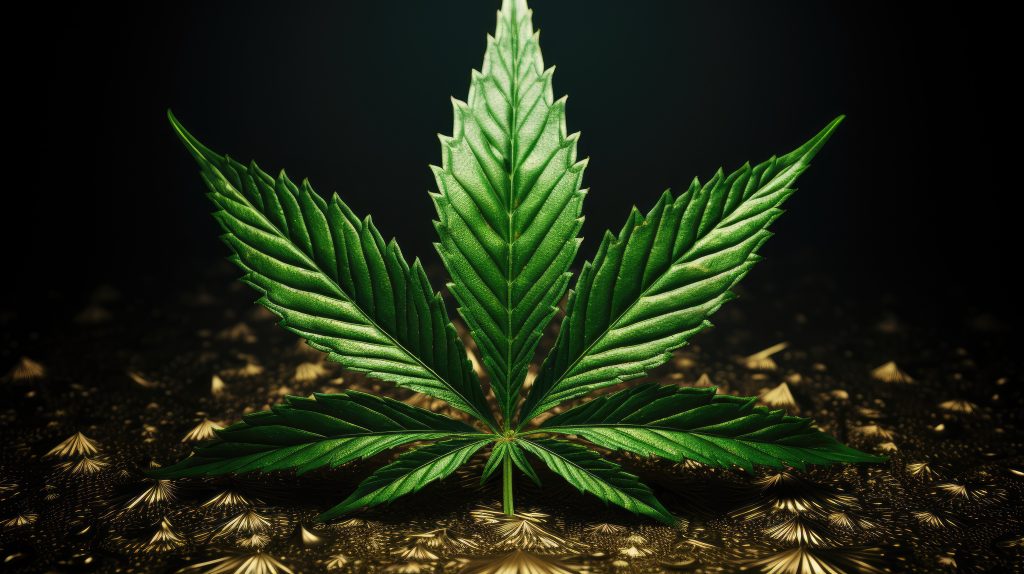THCA, or tetrahydrocannabinolic acid, is becoming a popular topic in the cannabis world. Many cannabis enthusiasts are familiar with THC, the compound responsible for the psychoactive effects that “get you high.” However, THCA is different. Found in raw cannabis, THCA is the non-psychoactive precursor to THC. This means that while THCA doesn’t produce intoxicating effects on its own, it transforms into THC when exposed to heat.
Understanding THCA and how it differs from THC is essential, especially as more consumers look for non-psychoactive cannabis products. In this guide, we’ll dive into what THCA means and how it relates to THC. Let’s explore everything you need to know about THCA and its role in the cannabis industry.
What is THCA?
THCA stands for tetrahydrocannabinolic acid, a cannabinoid found in raw cannabis plants. Unlike THC, THCA is a non-psychoactive compound, meaning it doesn’t get you high. THCA is present in cannabis before the plant is exposed to heat. Once heated, it goes through a process called decarboxylation, which converts THCA into THC. THC is the psychoactive compound responsible for marijuana’s intoxicating effects.
THCA is commonly found in raw cannabis buds and fresh cannabis extracts. As a precursor to THC, it is essential in understanding the life cycle of the cannabis plant. While THCA itself won’t produce psychoactive effects when consumed, it’s the starting point for creating THC, the cannabinoid most associated with marijuana use.
How THCA Converts to THC
THCA turns into THC when it’s exposed to heat through a process called decarboxylation. This transformation happens when you smoke, vape, or cook with cannabis. THCA, in its raw form, has a carboxyl group attached to its molecular structure. When heated, this carboxyl group is removed, converting THCA into delta-9 THC, the compound responsible for marijuana’s psychoactive effects.
This conversion is why raw cannabis doesn’t get you high. Instead, it’s the heating process that activates THCA, transforming it into the THC that produces psychoactive effects. Without decarboxylation, consuming raw cannabis or THCA products will not produce the same “high” as consuming THC-rich products.
This process is what makes THCA unique from THC—while they’re chemically related, they produce very different effects depending on how the cannabis is consumed.
Differences Between THCA and THC
Though THCA and THC share a close relationship, they are quite different in terms of their effects and uses. THCA is a non-psychoactive compound, meaning it does not produce the intoxicating effects typically associated with marijuana. In contrast, THC is the cannabinoid responsible for the “high” people experience during marijuana use.
The key difference between THCA and THC is decarboxylation, the process that converts THCA into THC when exposed to heat. Raw cannabis contains THCA, while products that have been heated, such as joints, vapes, and edibles, contain THC. Cannabis products that focus on the raw benefits of the plant often feature THCA. Products made for their psychoactive effects typically contain THC.
Additionally, the legal status of THCA and THC varies. Under the 2018 Farm Bill, hemp-derived products containing less than 0.3% delta-9 THC are federally legal. However, THC-heavy cannabis remains illegal in many states, unless for medical or recreational purposes.

Benefits of THCA
While THCA doesn’t produce the psychoactive effects of THC, it still offers various potential benefits. THCA products, such as raw cannabis or extracts, are becoming more popular for those seeking to experience cannabis without getting high. Consuming raw cannabis in the form of smoothies, juices, or tinctures is one way to enjoy THCA without converting it into THC.
THCA may offer non-psychoactive benefits, making it appealing for those who want to avoid the intoxicating effects of THC. THCA also fits into the wider cannabinoid family. It works alongside other cannabinoids like CBD and CBG, but with its own unique properties. The cannabis industry continues to explore ways to use THCA in products that offer users alternative experiences compared to traditional THC products.
Although research into THCA is still growing, its non-psychoactive nature allows for more versatile use without concerns over producing a high. This is why THCA products, such as raw flower and extracts, are gaining attention from both consumers and the cannabis industry
How to Use THCA Products
You can consume THCA in various ways. Your chosen method of consumption determines whether THCA stays non-psychoactive or converts into THC. If you want to experience the benefits of THCA without turning it into THC, you’ll need to use raw cannabis products. This includes fresh cannabis leaves, raw cannabis extracts, or even THCA tinctures that haven’t been exposed to heat.
One popular way to consume THCA is through juicing or blending raw cannabis into smoothies. This preserves the THCA molecules and prevents them from converting into THC. Edibles that don’t involve heat, such as raw cannabis-infused oils or capsules, are also effective ways to consume THCA without the psychoactive effects.
For those who want to experience both THCA and THC, smoking, vaping, or cooking with cannabis will convert THCA into THC, resulting in psychoactive effects. The key is understanding how heat transforms THCA and choosing your method of consumption accordingly.
THCA vs. Other Cannabinoids
THCA is part of a larger family of cannabinoids found in the cannabis plant. It’s important to understand how it compares to other well-known cannabinoids like CBD, CBG, and Delta-8 THC. Each cannabinoid offers unique properties and effects, making them suitable for different uses.
- THCA vs. CBD: While both are non-psychoactive, CBD remains stable and doesn’t convert to THC when exposed to heat. THCA, on the other hand, converts to THC through decarboxylation, making it a precursor to psychoactive effects.
Both THCA and other cannabinoids like CBG or Delta-8 THC are gaining popularity, but they serve different purposes. THCA stands out as the non-psychoactive precursor to THC, while Delta-8 offers a milder psychoactive experience compared to delta-9 THC. Understanding these differences helps consumers choose the cannabinoid that best fits their needs.
Legal Status of THCA
The legal status of THCA can be somewhat confusing. Under the 2018 Farm Bill, hemp-derived THCA products containing less than 0.3% delta-9 THC are federally legal. THCA itself, when derived from hemp, is considered a legal product. However, it’s important to remember that THCA converts to THC when exposed to heat.
While THCA products are legal on a federal level, individual states may have different laws regarding the use, sale, and possession of THCA. Some states may treat THCA similarly to THC because of its potential to produce psychoactive effects when heated. Therefore, it’s essential to check local cannabis laws before buying or using THCA products, especially in states where marijuana use remains illegal.
Consumers should be aware that although THCA is technically legal, authorities in some areas may treat smoking or vaping THCA like consuming THC due to its conversion into psychoactive THC. This legal loophole makes it important to stay informed about how state laws treat both THCA and THC.
THCA in the Cannabis Industry
The cannabis industry is increasingly incorporating THCA into a wide range of products. Now offering consumers more options beyond traditional THC products. As people explore non-psychoactive cannabis options, THCA products are gaining traction, particularly in raw forms like THCA flower, tinctures, and concentrates. These products allow consumers to enjoy the benefits of the cannabis plant without the intoxicating effects that come with THC.
THCA’s role in the cannabis industry goes beyond just recreational use. Many cannabis brands are creating THCA-infused products aimed at users who want to experience the raw benefits of the cannabis plant. Raw cannabis juices, THCA capsules, and THCA topicals are just a few examples of how THCA is making its mark in the market.
High-THCA flower is becoming a popular option among cannabis connoisseurs who appreciate the flexibility of converting THCA into THC when they want to. With its unique non-psychoactive properties and potential benefits, THCA continues to carve out its place in the ever-expanding cannabis industry.

So, What is THCA and What Does That Mean?
THCA, or tetrahydrocannabinolic acid, plays a unique and essential role in the cannabis plant. As the non-psychoactive precursor to THC, THCA offers cannabis users the opportunity to experience the raw benefits of cannabis without the intoxicating effects typically associated with THC. Commonly found in raw cannabis, once exposed to heat, THCA converts into THC, creating the psychoactive effects known in marijuana use.
The difference between THCA and THC goes beyond just psychoactivity. THCA provides flexibility for consumers who want to choose between non-psychoactive and psychoactive experiences depending on how they consume the product. Whether used in its raw form or converted into THC, THCA has become a valuable part of the cannabis industry, appearing in a range of products from tinctures to high-THCA flower.
As THCA’s popularity continues to grow, it’s important to understand the legal landscape surrounding it. While THCA is legal under federal law, its transformation into THC can create a legal gray area in some states. Staying informed about the legal status of THCA and THC is crucial for consumers looking to enjoy this cannabinoid safely and legally.
In summary, THCA may not produce psychoactive effects on its own, but it is an essential part of the cannabis plant’s life cycle. As more people explore the differences between THCA and THC, it’s clear that THCA has a growing role in the cannabis industry’s future.


